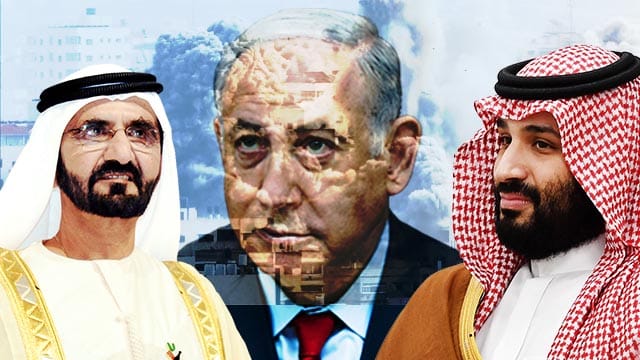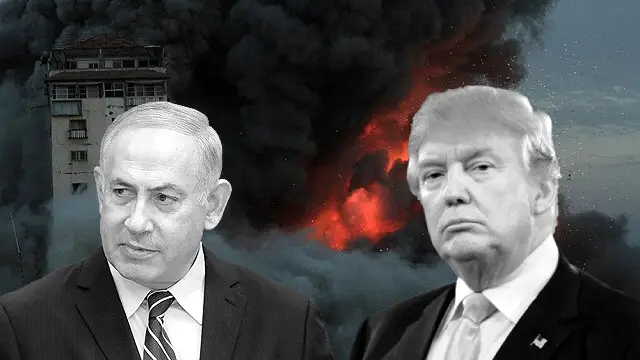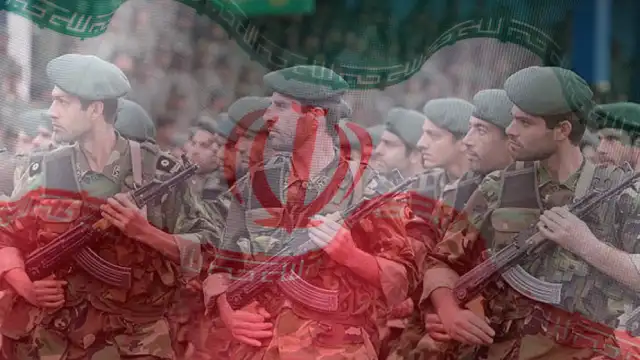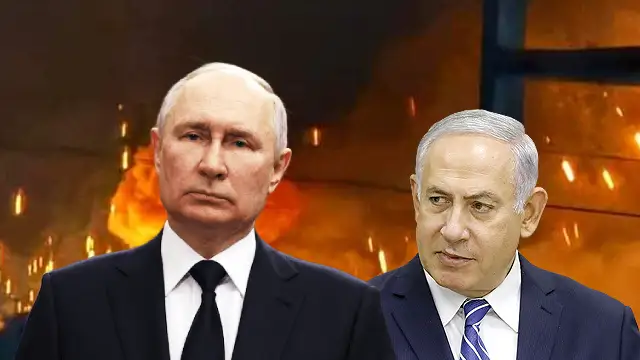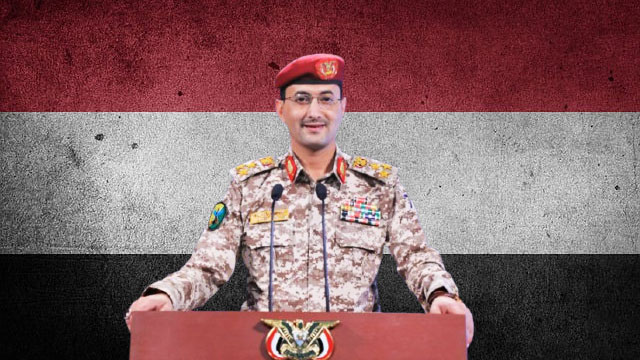“We just want to say to the Arab countries to intervene in the war. We are done. You killed my people! You killed my people! Nothing is left of my people! What’s left of my people? What’s left? We want our freedom like all the other Arab children! We want our freedom. We want to live like they do! Why us? Why? Why us? Why the children of Palestine?”
– An aggrieved Palestinian girl child asked the world, especially the Arab world regarding its conspicuous silence over the Gaza genocide.
According to the United Nations Office for the Coordination of Humanitarian Affairs (UNOCHA), 11,078 Palestinians, including 4,506 children, 3,027 women and 678 elderly were killed by the Zionist Israeli occupation state during the ongoing Gaza genocide.
From the beginning of the Gaza genocide, there was a strong demand for the Arab countries, especially the rich and powerful Gulf monarchies, to intervene and save the lives of the Palestinians. But such pleadings apparently fell on deaf ears.
Except for Iran, Syria and Yemen, the bitter foes of the Zionist occupation forces, none of the Arab countries even went beyond official condemnations throughout the genocide.
What did the Arabs do to stop the Gaza genocide?
The only thing that most of the Arab states have managed to do so far is talk. They spoke among themselves; they spoke with other countries and at different forums urging an end to the genocide. Though their words had never saved Palestinian lives in the past, they chose to talk, and talk a lot, to show the world that they are concerned for Palestine.
On November 11th, Saudi Arabian Crown Prince Mohammad bin Salman (MbS) convened an emergency summit of the Arab League member countries and of the members of the 57-nation-strong Organisation of Islamic Cooperation (OIC) to discuss the ongoing Gaza genocide.
Rather than figuring out a way to stop the genocide through active efforts, most of the Arab countries and the OIC members merely condemned the Gaza genocide and criticised Israel. It called upon the very international bodies, which have been mute spectators of the war crimes, to come to the rescue of the people of Palestine.
If this wasn’t enough, seven Arab countries with various levels of ties with Israel— Bahrain, Djibouti, Egypt, Jordan, Mauritania, Morocco, Saudi Arabia, Sudan and the UAE—shot down a proposal brought by Algeria in the Summit, which asked the Arab countries to snap all ties with the Zionist state.
That’s not all! Saudi Arabia has denied access to its airspace to the Houthi rebels of Yemen, where a US-funded Riyadh-led coalition carried out a large-scale genocide for years. The Houthis, from whom the Saudis had suffered severe blows for years, requested access to the airspace to attack Israel with their drones and missiles.
Even though MbS denied the Houthis, the Kingdom’s detested foes, any access to the Saudi airspace to launch an attack on Israel, he didn’t stop the Zionist state from using it.
Cowed by Netanyahu?
While the Arab leaders pondered over how to write a communique exhibiting a timid response to the Gaza genocide, Israeli Prime Minister Benjamin Netanyahu issued a direct threat to them.
Netanyahu asserted that the Arab countries shouldn’t make any noise about the Gaza genocide but only talk about Hamas and its attack on Israeli occupation on October 7th.
“To the leaders of the Arab states, leaders who worry about the future of their countries and of the Middle East, I say one thing: You must come out against Hamas”, the Israeli prime minister had said.
Iran-Syria-Yemen stand out
Iran, the principal regional rival of Israel and the US, has been strongly demanding that the Arab states impose an embargo on Israel to force it to stop the genocide. Iran has reportedly backed the Hamas-led resistance and has been one of the sponsors of the Lebanon-based Hezbollah movement.
Iranian President Ebrahim Raeisi stressed that the Arab countries must play a pivotal role in ending the Gaza genocide by Israel as the West has been playing second fiddle to the Zionist state. “Now that the international assemblies under the influence of the United States are suffering from indecisiveness and lack of character and identity, we must take the field”, Raeisi told the leaders of the Arab countries.
Raeisi’s proposals to the Arab countries included the designation of Israel as a “terrorist organisation”, imposing sanctions on Tel Aviv, snapping all diplomatic ties with the Zionist state, arming the Palestinian resistance and forming an international tribunal to prosecute Netanyahu-led Zionist government for the crimes against humanity in Palestine.
However, although relations between the Kingdom of Saudi Arabia, the principal ally of the US in the Gulf, and Iran have started normalising under the aegis of China and due to the growing influence of Russia in the region, which was epitomised by the first ever visit of an Iranian president to the Kingdom in over a decade, the Saudi Arabia-led Gulf monarchies are apprehensive of the Iranian proposal.
Gauging the issue in advance, Syrian President Bashar al-Assad had alleged in the Arab League meeting that such communiques and condemnations matter nothing in the real world, as they appear as weak tools in the case of a genocide of civilians where the perpetrators are operating with sheer impunity, thanks to the unequivocal support extended to it by the major powers of the West like the US and the European Union (EU) countries. Assad called for realistic measures to immediately halt the slaughter of women and children.
“If we do not have real tools for pressure, then any step we take or speech we give will have no meaning”, Assad said at the Arab League meeting. He stressed that the Arab countries should refrain from any form of political engagement with Israel until it agrees to a lasting ceasefire. “A right cannot be restored when the criminal has become a judge and the thief has become a referee”, the Syrian president said during the meeting.
Ironically, Assad’s Syria was expelled from the Arab League following the “civil war” initiated by the terrorist organisations funded by the West and Gulf monarchies. After Assad’s government emerged victorious and following the rapprochement between Iran and Saudi Arabia under Chinese mediation, Syria was recently re-admitted to the Arab League.
Yemen’s Houthi rebels have supported the Palestinian resistance and declared war against the Israeli regime. However, due to the strong opposition of the Saudi Arabian monarchy they couldn’t launch any attack on the Zionist state. Yet, a war-torn Yemen remains resolute in supporting the people’s struggle in Palestine, which none of the rich Arab countries can afford.
But why are the Arab countries scared of Israel? Is it due to its military prowess and impunity with which it operates against other countries?
Comparison of military prowess
Although Israel is the sole nuclear power in West Asia, it’s not an invincible force. Apart from Iran, the Gulf monarchies, Egypt and Türkiye have a strong military with advanced weapons and air-defence systems.
The following chart shows the military strength of Israel in terms of manpower.
The chart below shows how the Arab countries, especially Egypt, far surpass Israel in terms of manpower.
In the meantime, Türkiye, a non-Arab country which attempts to woo the Muslim community globally by portraying itself as a resurrected version of the erstwhile Ottoman empire, also has considerable military strength vis-à-vis Israel and is one of the member states of the US-led North Atlantic Treaty Organization (NATO).
The following chart shows the military strength of Türkiye.
If the data of the total military spending of the countries in the region, including Türkiye, is taken into account, then it can be found that Saudi Arabia’s military spending alone rose by 16% in 2022 while that of Israel fell by 4.2%.
While data in terms of relative military strength shows that Egypt, Saudi Arabia and Türkiye, as well as the Arab countries, collectively have far greater strength than the Israelis, and they can exert pressure on Tel Aviv unitedly, they have refrained from doing so because of several factors, especially their economic and defence ties with Israel and the US.
Defence and other collaboration between the Arab countries and Israel
Despite their periodic condemnation of Israeli aggression in Palestine and demand for the implementation of the two-state solution according to the Oslo Accords, 1993, at least eight Arab countries have been maintaining cordial ties with the Zionist state, even before the Donald Trump administration brokered the Abraham Accords in 2020.
Saudi Arabia-Israel ties
Saudi Crown Prince Mohammad bin Salman (MbS) reportedly visited Israel in September 2017. Although the trip was a secret one, the Israeli radio’s Arabic services mentioned the visit by a top member of the monarchy to the state on September 7th, 2017.
The AFP quoted anonymous officials who claimed that MbS visited Israel and both sides were then trying to strengthen their ties with a common goal of resisting the rise of Iran, their common rival. Both Saudi Arabia and Israel also reportedly supported the terrorist groups that the US had unleashed to topple Assad’s government.
Later, it’s alleged that Saudi Arabia also got access to the infamous spyware named Pegasus, accused of being able to hack into smartphones and allow governments to carry out surveillance without the target’s knowledge. It’s alleged that the Pegasus spyware was used by Saudi Arabia to carry out surveillance on slain Saudi journalist Jamal Khashoggi, who was killed in the Saudi Arabian embassy in Türkiye in 2018.
According to Al Jazeera, Saudi Arabia reportedly purchased surveillance solutions from Israel worth $250m in October 2018. The deal was reportedly brokered by the US, and Saudi Arabia got its hands on surveillance equipment and state-of-the-art espionage solutions.
In 2018 itself, two years before the Abraham Accords, MbS claimed in an interview that Israel has a right to exist in its land peacefully. His liking for Israel was driven by his detest for Iran, which he compared with Nazi Germany.
The UAE-Israel ties
Though the UAE established formal diplomatic ties with Israel in 2020, the kingdom reportedly bought the services of the Israeli NSO Group, which is the owner of the Pegasus spyware, to spy on its dissidents in 2018 itself. It was reported by none other than The New York Times!
In October 2018, former Israeli culture minister Miri Regev visited the UAE and during her tour, the Israeli national anthem was played for the first time by the Sheikhdom. Regev is one of the infamous far-right hatemongers in Israel and she courted several controversies earlier due to her racist remarks and genocidal chants.
The UAE, which has an intelligence-sharing arrangement with Israel, also has joint India-Israel Barak-8 launchers and Elta radar systems, which it acquired with help from Tel Aviv to defend its territories from the rocket and drone attacks from the Houthi rebels of Yemen, who fought against Saudi-UAE aggression on their country for years.
Israel’s ties with other Arab countries
Apart from Saudi Arabia and the UAE, Israel also shared strong ties with other Arab countries like Bahrain, Egypt, Jordan, Morocco, Oman and Sudan.
Following the normalisation of their ties with Israel under the Abraham Accords, Bahrain, Morocco and the UAE accounted for 24% of Israel’s total defence exports in 2022, worth almost $3b, which is a major leap from 7% in 2021.
Egypt reportedly has a strong intelligence-sharing arrangement with Israel and works in partnership with Tel Aviv in maintaining the security at the Rafah checkpost that borders Gaza. Israel also carries out airstrikes in northern Sinai. In 2018, Egypt signed a gas deal with Israel, under which Tel Aviv supplies Cairo with gas worth $15b.
The US hegemony in the Middle East relies on Arab states
Since the Cold War era, the US has been attempting to establish its hegemony in the Middle East but has failed so far, except for in the Gulf monarchies where it has a relatively tighter grip. The ties with the US prevent these Gulf monarchies from taking any concrete action in favour of the Palestinian people.
Bahrain-US ties
According to Bloomberg, the Comprehensive Security Integration and Prosperity Agreement (C-SIPA), signed between Bahrain and the US in September this year, can act as a template for the entire Middle East, where the US interests appear jeopardised due to the rise of Chinese and Russian influence lately.
The C-SIPA came soon after India and the US announced the India-Middle East-Europe Economic Corridor (IMEC) project during the G20 Summit held in New Delhi.
According to the White House, “C-SIPA further advances that vision by formalizing cooperation to deter conflict in the region, enhance regional stability, de-escalate tensions, and bolster trade and economic cooperation – including through the development and deployment of advanced technologies with trusted vendors (sic).”
The White House also informs that Bahrain is host to the US Navy’s Fifth Fleet and the headquarters of the US Naval Forces Central Command. Bahrain was also one of the first countries to receive the F-16 fighter jets in the 1990s.
Bahrain and the US signed a Free Trade Agreement in 2006, and their trade tripled from $780m in 2006 to $3b in 2022. Bahrain has also inaugurated a US Trade Zone where American corporations can develop new products and reach untapped markets.
Egypt-US ties
According to the US State Department, Washington DC has contributed more than $50b in military assistance to Egypt since 1978. Egypt is a strategic security partner of the US in the Arab world and Africa.
The US Department of Defense and the Egyptian Ministry of Defense convened the 34th Military Cooperation Committee (MCC) of the two countries on October 29th and 30th, when the Gaza genocide was at its peak. The military leaders of both countries discussed the need to expand their cooperation in regional security through joint exercises, training, etc, at the MCC meeting.
According to a report to the US Congress on Egypt, President Joe Biden’s administration has requested $1.4b in bilateral assistance for Egypt for the financial year (FY) 2024. The US had allocated the same amount in FY 2023 for Egypt.
Saudi-US ties
The Kingdom of Saudi Arabia is reportedly the strongest Arab partner of the US in the Middle East. Both countries share an eight-decade-long bilateral relationship, in which military collaboration is one of the principal pillars.
The US has provided a huge cache of Saudi Arabia in its Yemen aggression, where it carried out a large-scale genocide. For the US, the Kingdom is one of the important pillars against its regional rival Iran.
Between 2015 and 2019, a total of 73% of Saudi Arabian arms imports came from the US, while 13% came from the UK. While the weapons exported by the US to Saudi Arabia in the five years before the Yemen aggression amounted to $3b, between 2015 and 2020, the US agreed to sell weapons worth $64.1b to Saudi Arabia.
According to the Stockholm International Peace Research Institute, Saudi Arabia bought 23% of all US weapons sold between 2017 and 2021. While Biden claimed in 2019 that he would make the Kingdom a “Pariah” in the international arena and banned offensive weapon sales to Riyadh in February 2022, he took a reverse turn in a few months.
Following Biden’s Saudi Arabia tour in July 2022, the Kingdom announced that it would buy 300 Raytheon Technology-made MIM-104E Patriot missiles worth more than $3b. This will replenish the Kingdom’s dwindling stock of the Patriot GEM-T missiles.
The UAE-US ties
Apart from Saudi Arabia, the UAE has been a military partner of the US in the Middle East. According to the government’s information – “The UAE is only one of three countries and the only Arab nation to participate with the US in six coalition actions over the last 30 years: Afghanistan, Libya, Somalia, Bosnia-Kosovo, the 1990 Gulf War and the fight against ISIS.”
The UAE is one of the non-NATO countries to support the military bloc’s aggression in Serbia in 1990. It supported the US aggression in Afghanistan and Libya and played a pivotal role in the terrorist uprisings in Syria.
The US has provided the UAE with its most advanced F-16 aircraft called Block 60, which is also known as the Desert Falcon. In December 2020, the US Congress passed the proposal to sell F-35 Lightning II aircraft to the UAE along with other advanced defence technologies to counter the rise of Iran.
The US and the UAE also signed a renewed defence pact in May 2019. The UAE is a part of the Container Security Initiative, under which it protects the US cargo passing through Dubai port and secures the delivery of oil and gas to the West.
Are the Arab states safe?
By remaining indifferent towards the plight of the Palestinian people, especially the Gaza genocide, the Gulf monarchies believe that they are preventing a spillover of the conflict throughout the region, but that’s not the case.
The impunity with which Israel is operating, won’t stop at the Gaza genocide, rather, in its quest for regional hegemony at the behest of the US, the Israelis will continue their expansionism. They already have a plan to annex the West Bank using settler colonies.
From Iran, Lebanon and Syria, the Israeli forces can even try to annex parts of Egypt if they manage to annihilate Palestinian resistance. Their expansionist juggernaut will not stop at any border. None of the Arab states will remain immune from Israel’s neo-Nazi ambitions, which won’t stop if Tel Aviv manages to defeat Gaza and drive Palestinians into Egypt.
Although Qatar has managed to broker a deal between Hamas and Israelis for a temporary ceasefire until there is considerable pressure on Tel Aviv to stop its genocidal spree, there can neither be lasting peace in the region nor can there be any security assurance for the Arab countries.
The Palestinian people have shown immense courage in this situation by continuing their obstinate resistance against the Zionist aggression. While the Gulf monarchies, Egypt and Türkiye avoid confrontation with Israel over the Gaza genocide and can’t take effective actions to punish the Zionist state, the 2.2m people of an entrapped city are showing the world the spirit of resistance and how a colonised people can fight back a heavily armed occupation force relying on their own strength and courage. It’s time for the Arab world to at least recognise this courage if not support its actions.
Join our channels on Telegram and WhatsApp to receive geopolitical updates, videos and more.

